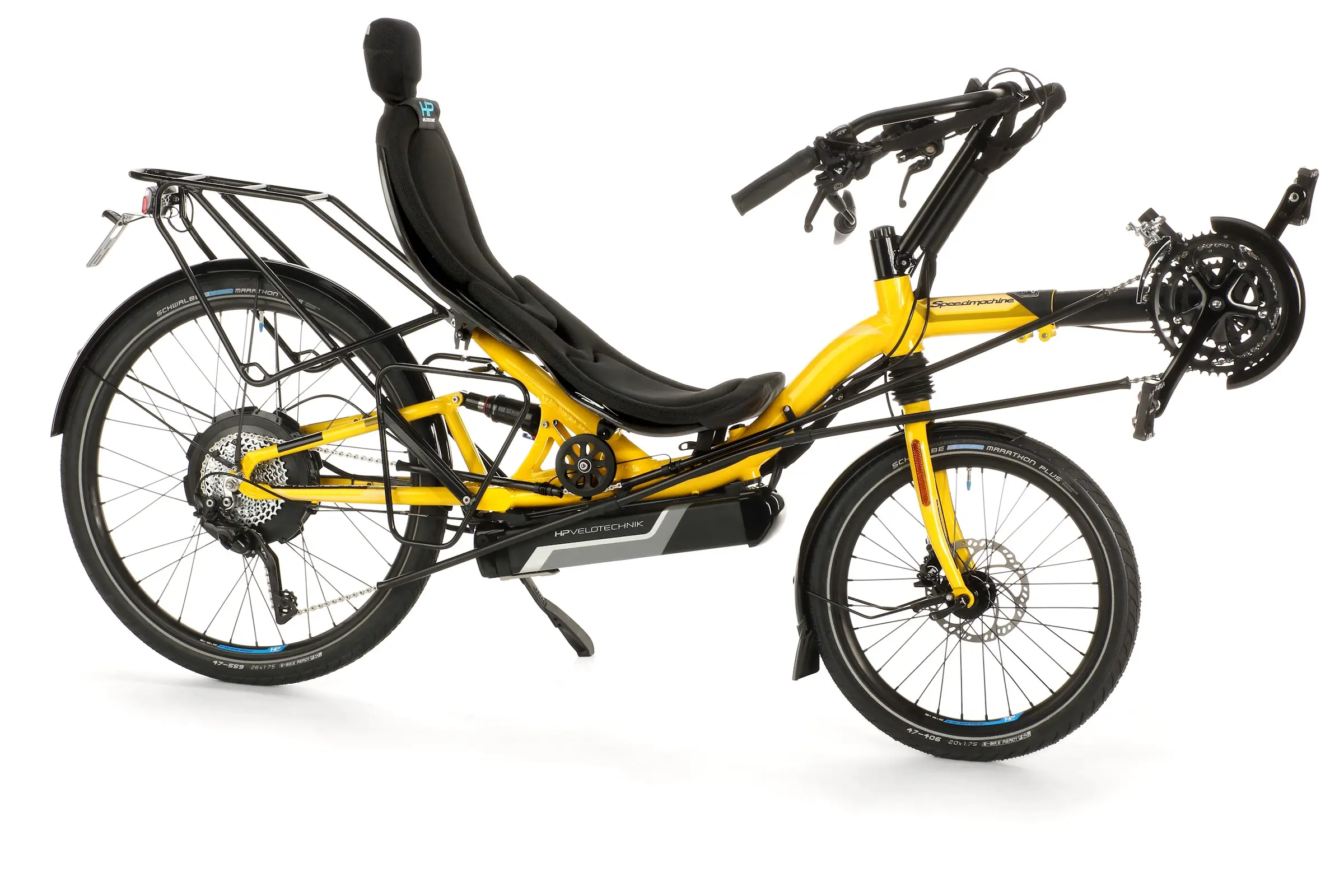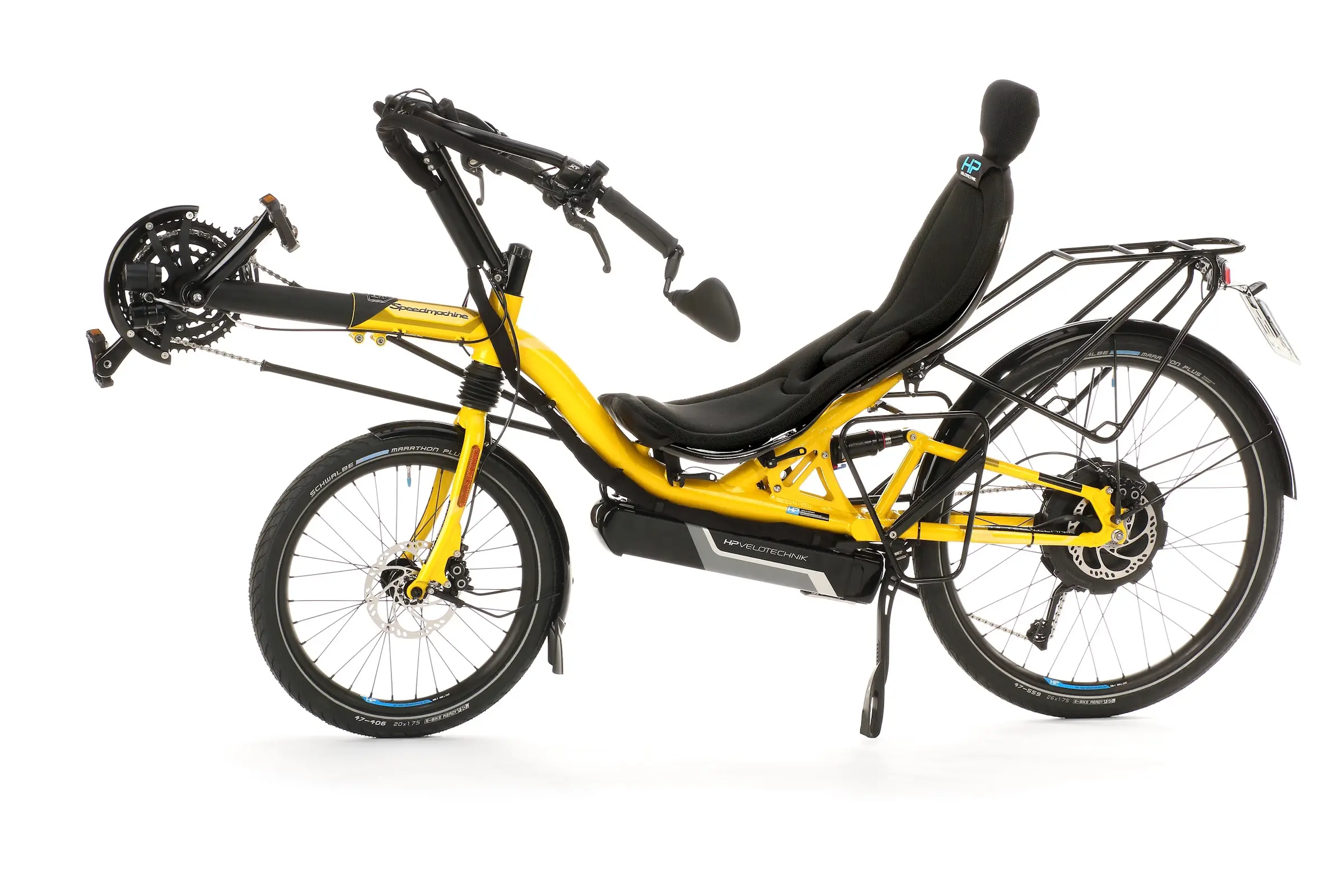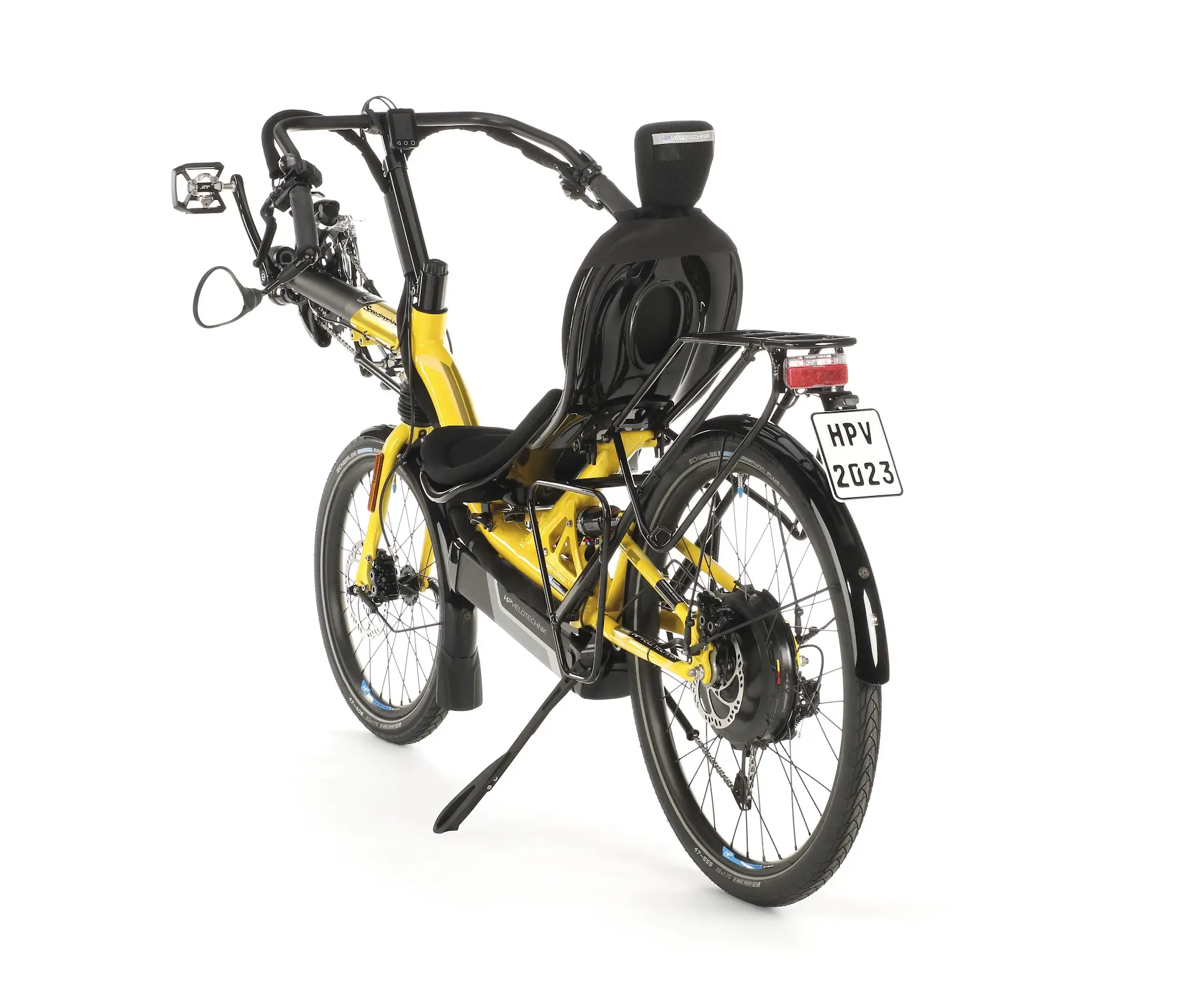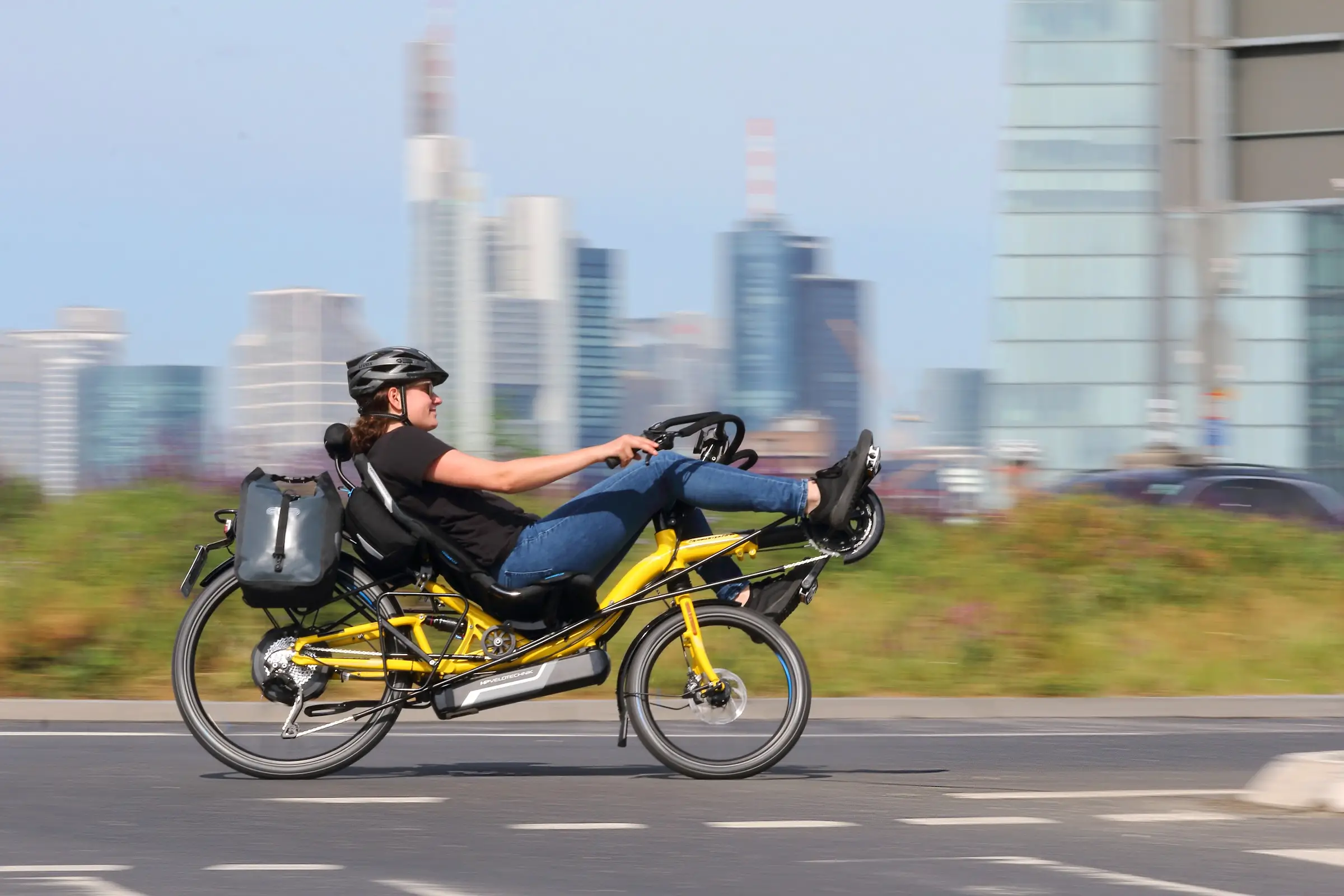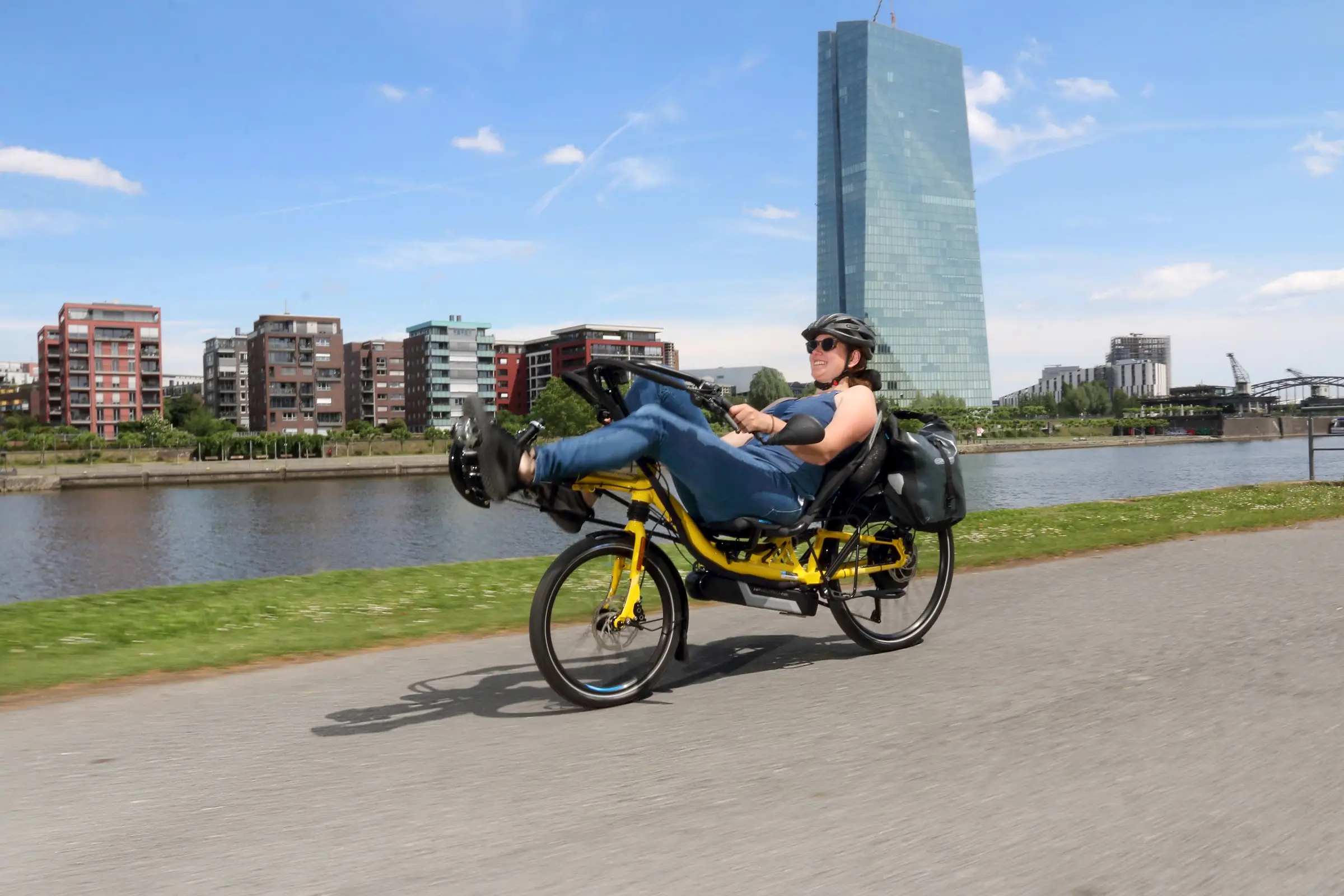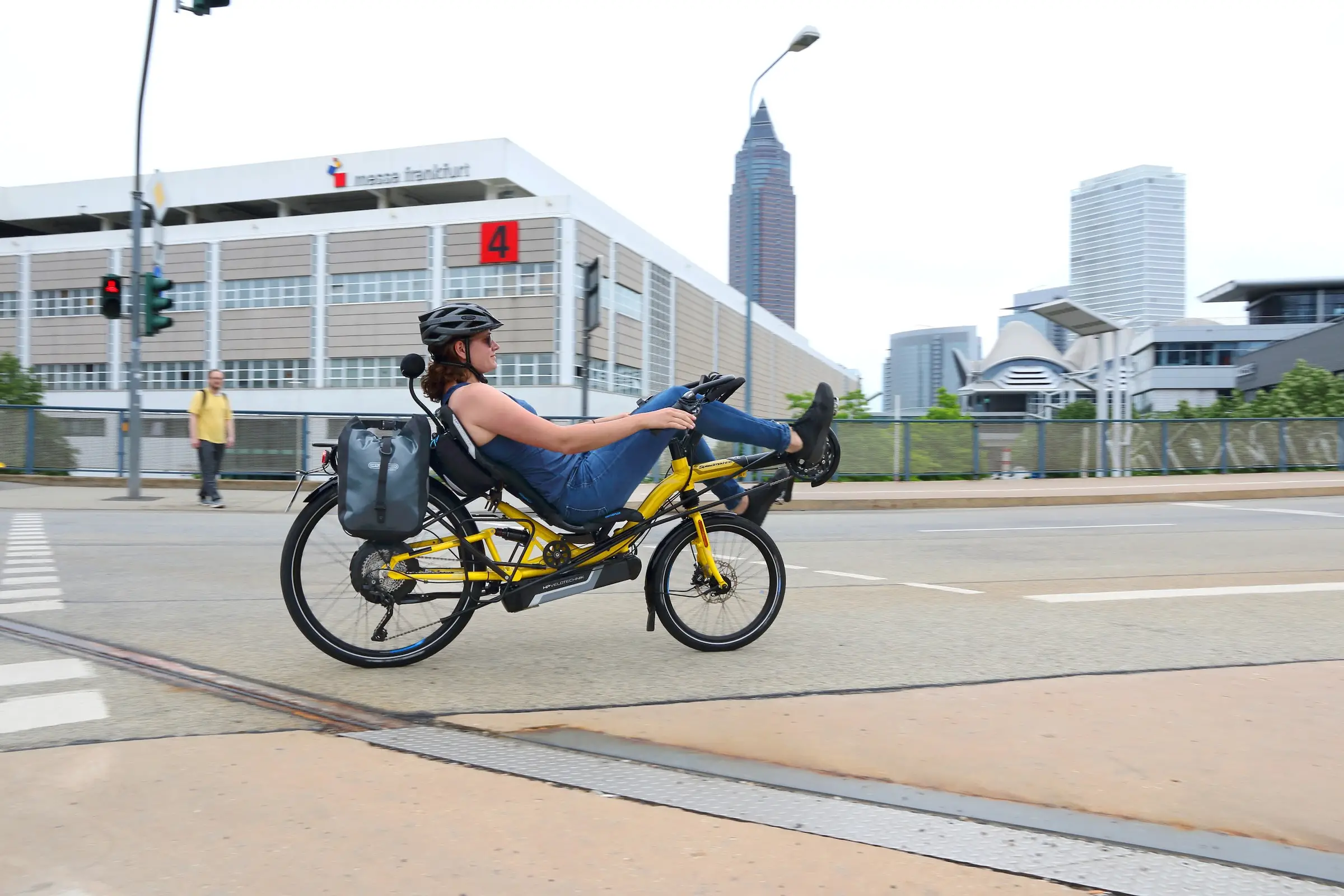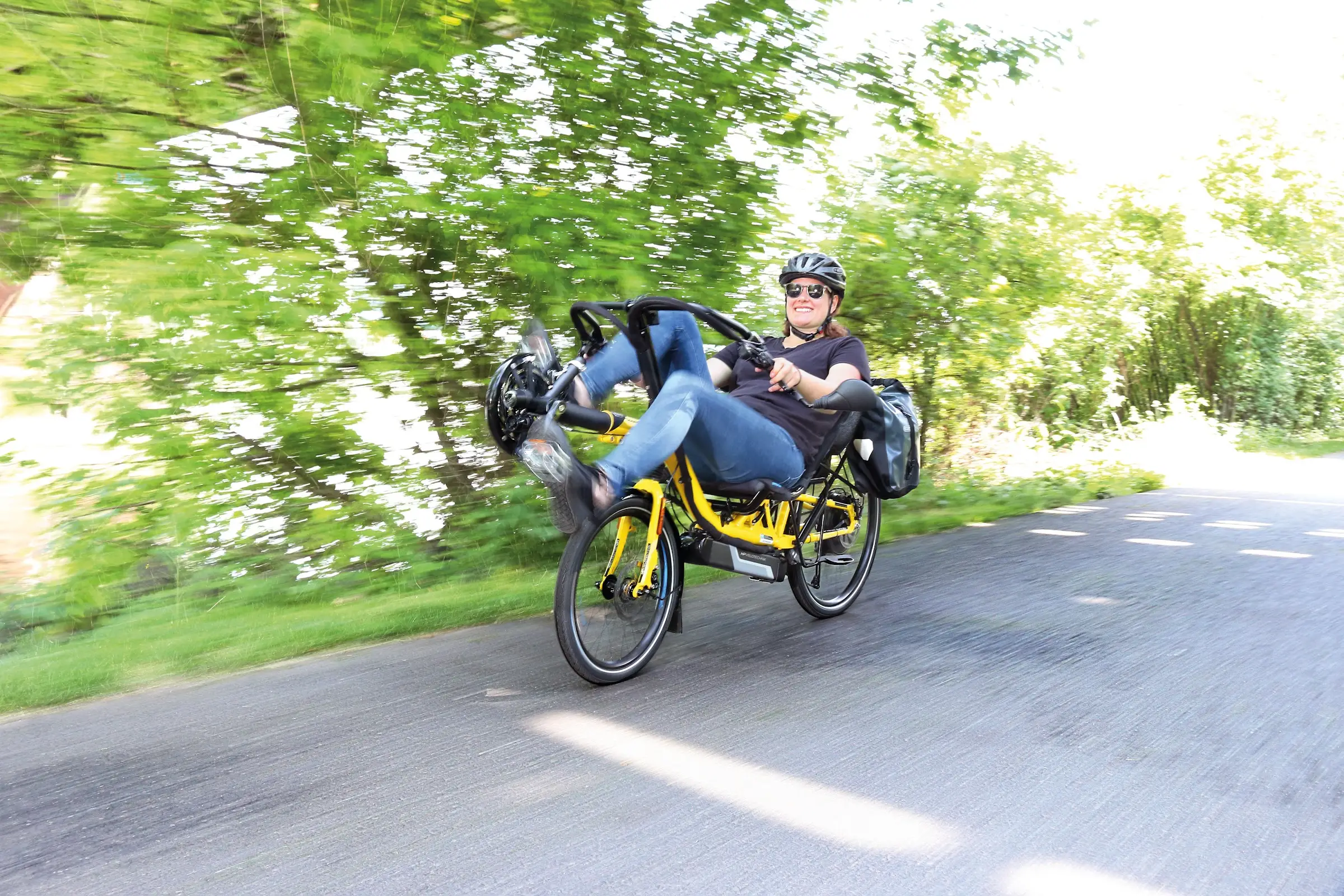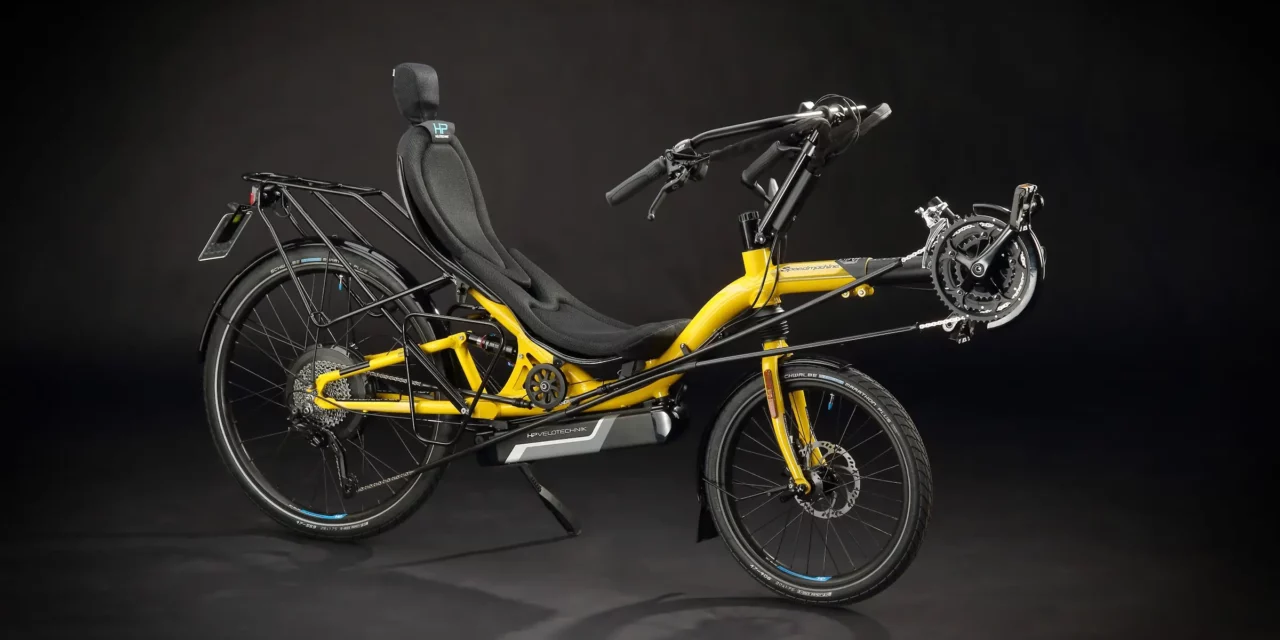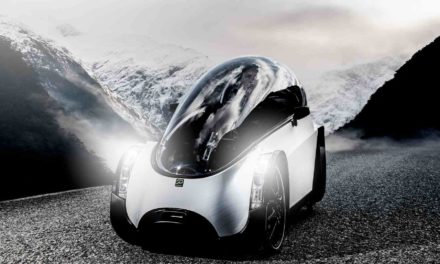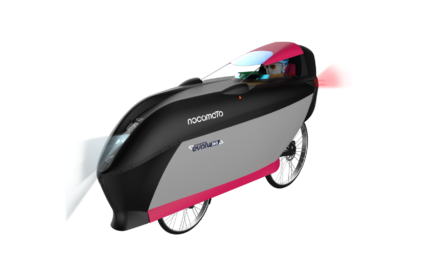The German recumbent company HP Velotechnik has a significant new product this year and also has a reason to celebrate. That product is, of course, the HP Velotechnik Speedmachine S-Pedelec recumbent bike, and the reason to celebrate is the company’s 30th anniversary. The Speedmachine S-Pedelec has recently been certified by the German KBA, which is a significant step towards expanding this bike within the EU.
You can also look forward to its summer test. After the SPEZI fair, I will get my hands on it, so I can experience what it is like to use an S-Pedelec. It will be my first long-term experience with this type of bike and, at the same time, the first test for RECUMBENT.news.
The German Kraftfahrtbundesamt (Federal Motor Transport Authority – KBA) has granted the HP Velotechnik Speedmachine S-Pedelec the first recumbent bike to be type-approved in Europe. The fast e-bike with pedal assistance up to 45 km/h (28 mph) was classified as a light motor vehicle with the type number e1168/201300335*00. As Managing Director Daniel Pulvermüller from the manufacturer HP Velotechnik explains, thanks to the approval, this fast electric recumbent bike can now be sold directly in all EU countries and in Switzerland. “Until now, we have had our S-Pedelecs individually approved by the TÜV. Instead of this cumbersome procedure, we now issue the EU certificate of conformity ourselves.” With this CoC paper (Certificate of Conformity), the buyer only has to take out insurance and mount the insurance number plate.
For HP Velotechnik, this is extremely good news in the anniversary year – the recumbent bike manufacturer is celebrating its 30th anniversary in 2023. At the same time, Pulvermüller used the letter from Berlin to express his lack of understanding of the provisions of the road traffic regulations. “The innovative S-Pedelecs are being slowed down in Germany.” This is all the more annoying since the fast bicycle class is the ideal alternative to the car both as a commuter vehicle and for longer distances in rural areas. “While the requirements are being relaxed in other EU countries, Germany does not give this climate-friendly technology a chance for a broader breakthrough.” For example, these bikes would have to be driven on the main roads outside of built-up areas, even if there is a cycle path next to them. The reason: “The StVO only knows a general ban on cycle paths for S-Pedelecs.” What may be understandable in individual cases on narrow and poorly built urban cycle paths makes no sense at the latest next to a four-lane road for cars and on wide cycle lanes.
“Other countries in the EU are much more advanced,” says Pulvermüller. Austria recently allowed S-Pedelec on cycle paths outside urban areas. “In Belgium, sales of speed pedelecs went through the roof after approval.” And in Switzerland, which hasn’t had any restrictions for the fast bike class for a long time, they have made up well over ten percent of the entire pedelec market for years. With regard to the federal government, Pulvermüller added: “It would be nice if the idea of freedom in the mobility sector were not only applied to cars but also opened up for bicycles. After all, the bike is mentioned by almost all experts as one of the central elements for a traffic turnaround in order to reduce CO2 emissions massively.
